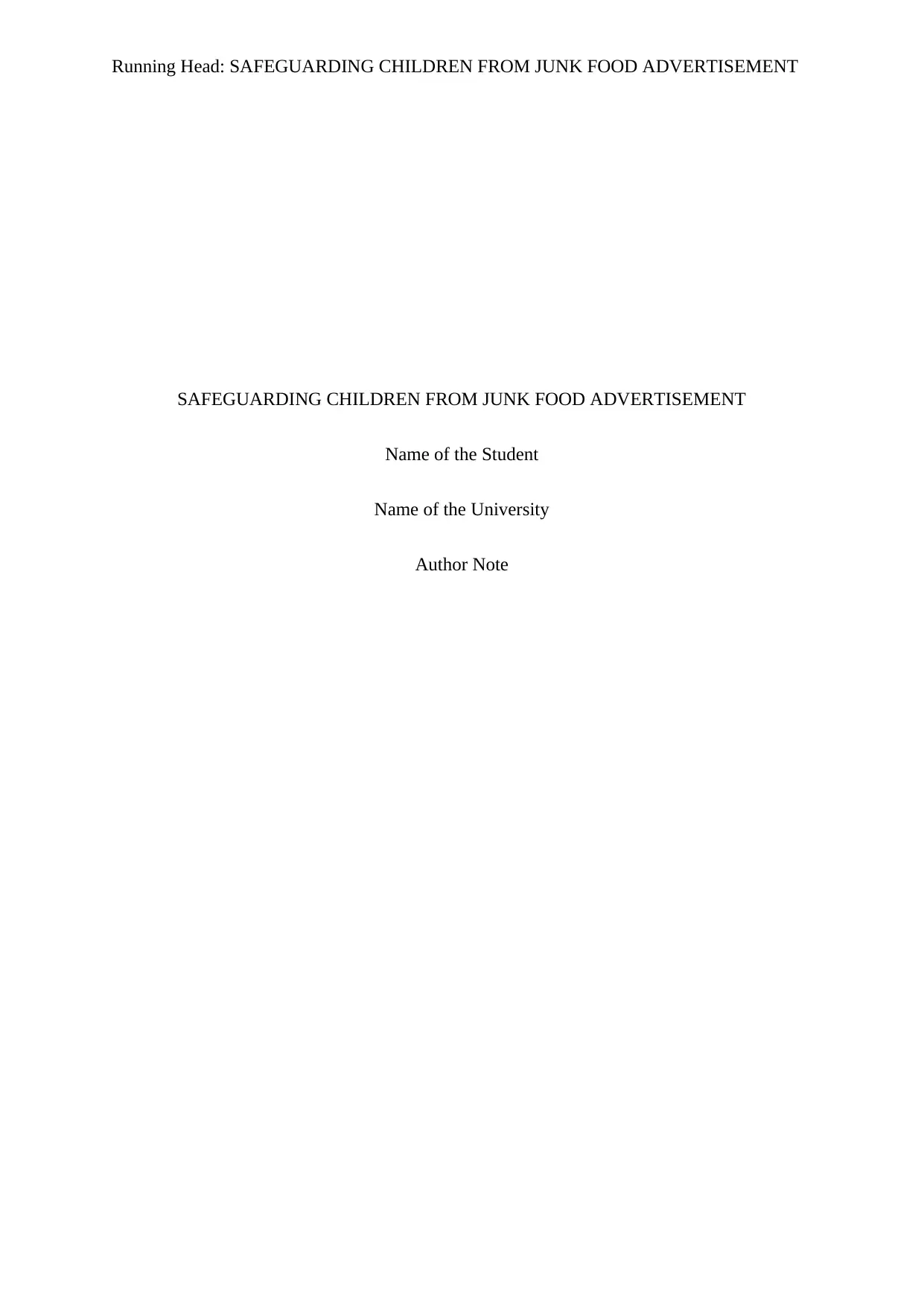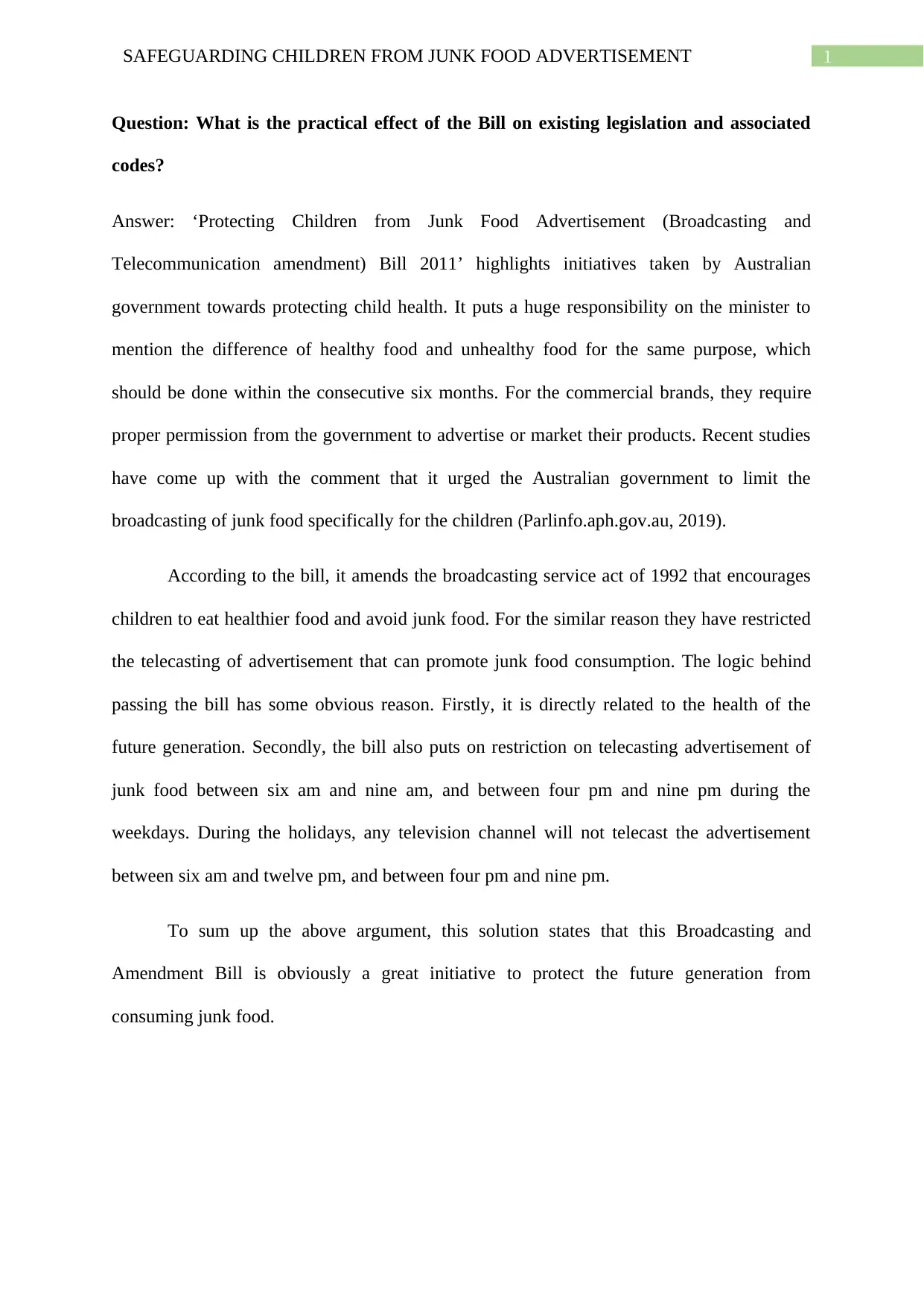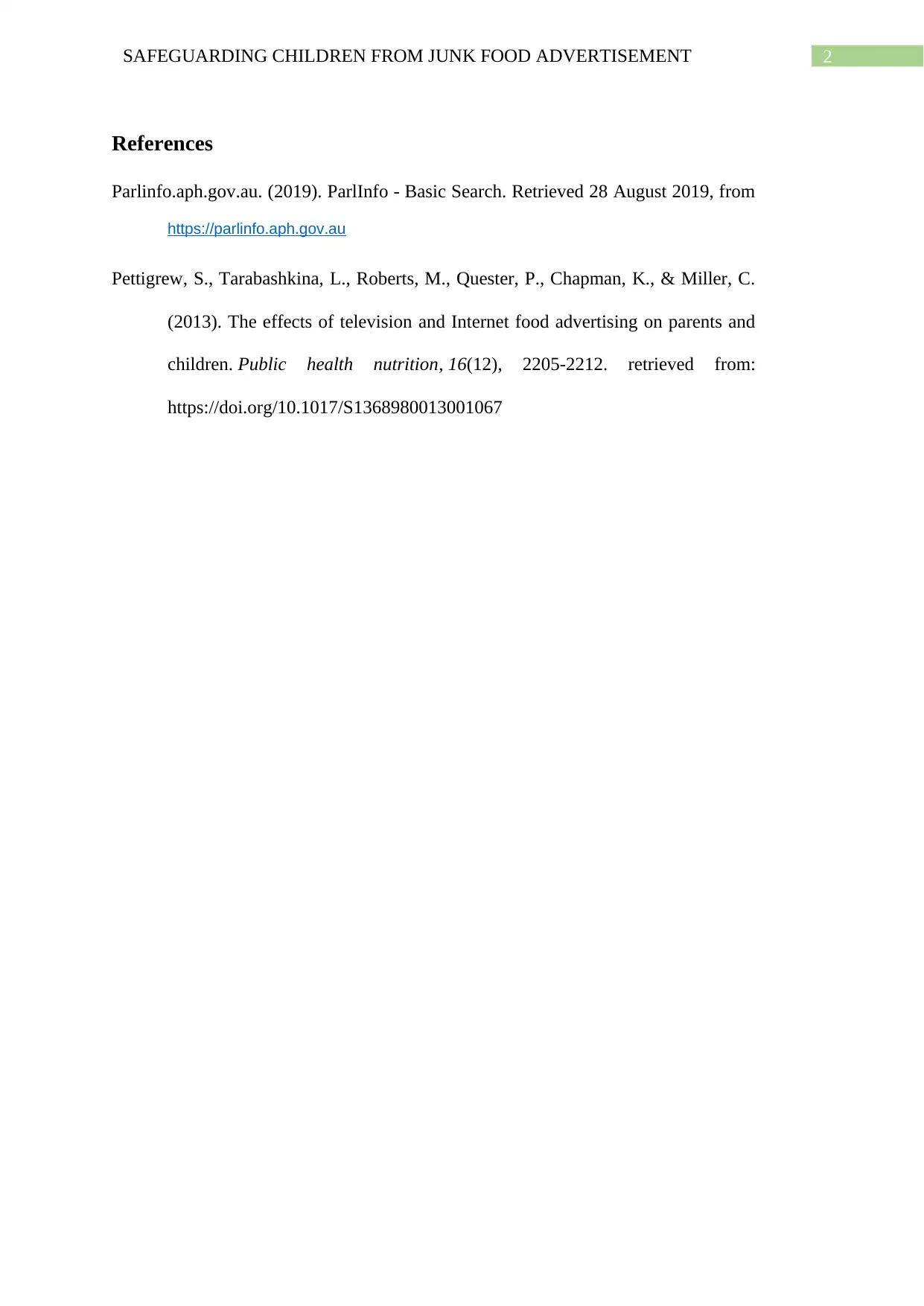Analysis of the Protecting Children from Junk Food Advertising Bill
VerifiedAdded on 2022/11/19
|3
|404
|74
Homework Assignment
AI Summary
This assignment analyzes the 'Protecting Children from Junk Food Advertising (Broadcasting and Telecommunications Amendment) Bill 2011' and its practical effects on existing legislation and codes. The bill, introduced in the Australian Parliament, aims to restrict junk food advertising to children, particularly during children's television programs. The solution provides an overview of the bill's provisions, including the proposed amendments to the Broadcasting Services Act of 1992, and the restrictions on advertising junk food. The assignment highlights the bill's intention to promote healthier eating habits among children and reduce the impact of junk food marketing. The bill places a significant responsibility on the government to differentiate between healthy and unhealthy foods and restricts the telecasting of junk food advertisements during specific time slots. While the bill was ultimately voted down, the assignment effectively addresses the question of the bill's potential impact on existing legislation and codes, emphasizing the importance of protecting children's health from the negative effects of junk food advertising.
1 out of 3





![[object Object]](/_next/static/media/star-bottom.7253800d.svg)